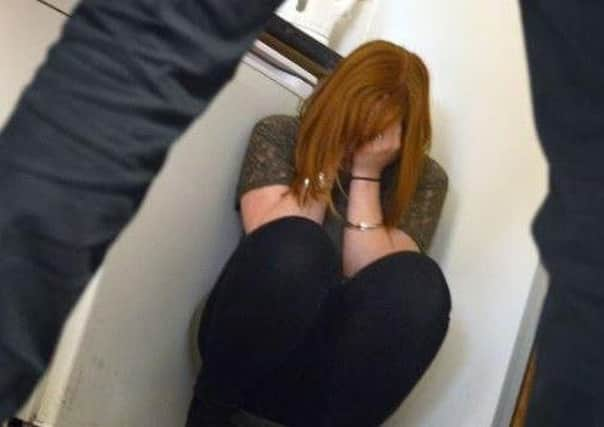The On The Beat column with Supt Paula Booth


As we have discovered in the previous themes of our ‘No Home Here’ campaign, which have covered domestic abuse, child neglect, stalking and harassment and hate, these are very much crimes that hidden away from public view and not obvious to spot.
Of all of the community harm issues to be highlighted, modern slavery is perhaps the most underground and secretive, and potentially poses the gravest danger to the victims.
Advertisement
Hide AdAdvertisement
Hide AdAlthough precise figures are not known, there are likely to be several hundred people trapped in some form of modern slavery in the North Yorkshire area at any one time.
The National Crime Agency estimates that there are upwards of 30,000 across the whole of the country.
Modern slavery covers forms of serious sexual and physical exploitation such as human trafficking, forced labour, domestic servitude, cannabis farming, car washes, child labour and organ trafficking.
This appalling crime may be found in any economic activity including hospitality and leisure, agriculture, construction, care, food production and fishing.
Advertisement
Hide AdAdvertisement
Hide AdMany people have the belief that such forms of slavery only exists in densely populated areas and cities, which really isn’t the case.
Modern slavery can be found in towns and villages, rural and isolated areas, just like ours.
Everyone can play a role in tackling slavery by knowing what it looks like, recognising it when they see it, and then taking action by reporting it to the police or local authorities.
Would you recognise the signs?
Although slavery can be very hard to identify, here are some key signs to watch out for:
Advertisement
Hide AdAdvertisement
Hide AdPhysical appearance: Victims may show signs of physical or psychological abuse, look malnourished or unkempt, or appear withdrawn.
Isolation: Victims may rarely be allowed to travel on their own, seem under the control and influence of others, rarely interact or appear unfamiliar with their neighbourhood or where they work.
Poor living conditions: Victims may be living in dirty, cramped or overcrowded accommodation, and often living and working at the same address.
Few or no personal effects: Victims may have no identification documents, have few personal possessions and always wear the same clothes day in day out. What clothes they do wear may not be suitable for their work.
Advertisement
Hide AdAdvertisement
Hide AdRestricted freedom of movement: Victims have little opportunity to move freely and may have had their travel documents retained including passports.
Unusual travel times: They may be dropped off or collected for work on a regular basis, either very early or late at night.
Reluctant to seek help: Victims may avoid eye contact and appear frightened or hesitant to talk to strangers. They also fear the police and government authorities for many reasons, such as not knowing who to trust or where to get help, fear of deportation and fear of violence to them or their family.
If you suspect that modern slavery is happening near you, please do the right thing and contact North Yorkshire Police on 101 – if there is an immediate threat, always dial 999.
Advertisement
Hide AdAdvertisement
Hide AdYou can also report information to the Modern Slavery helpline on 0800 0121 700, which is open 24 hours a day, seven days a week, or anonymously to Crimestoppers on 0800 555111.
Thank you for your continued support for the campaign and for your local police service in general.
It really is greatly appreciated.